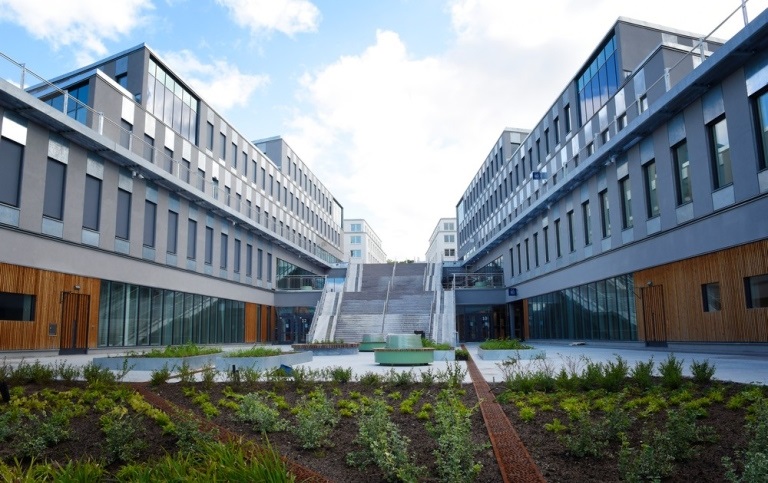
University of Stockholm
The University of Stockholm was established in 1878 as a college for teaching and research in the humanities and social sciences. it all began offering courses in subjects like philosophy and history, attracting students interested in these fields, Over the years the university experienced significant growth in student enrollment and faculty, driven by increased demand for higher education in Sweden with a strong emphasis on research began to take shape, leading to the establishment of various research institutes.
Today, the University of Stockholm is recognized as one of the top universities in Scandinavia, known for its high-quality education and impactful research, The university has also taken a leading role in sustainability research and practices. The university offers a wide range of undergraduate, master’s, and doctoral programs in both Swedish and English, attracting a diverse student body.

University of Stockholm
Research
The University of Stockholm is known for its strong emphasis on research and has numerous research centers and institutes. It is particularly noted for its contributions to social sciences, environmental sciences, and humanities.
Research Institutes and Centers
The university hosts several research centers that promote interdisciplinary studies and collaboration:
The Swedish Institute for Social Research (SOFI)
The Centre for Environmental Research (CEMUS)
The Institute for Research on Migration, Ethnicity and Society (REMESO)
Funding and Collaboration
Receives funding from various sources, including government grants, EU projects, and private foundations.
Collaborates with international universities and research institutions.
Impact
Research findings often influence public policy and contribute to societal development.
The university’s scholars frequently publish in high-impact journals and participate in global conferences.
Campus Facilities and Student Life
The main campus is Frescati, situated in a green area close to the city center, providing a vibrant and picturesque learning environment, They offer a diverse and international atmosphere, with a wide range of student organizations, cultural events, and activities that enhance the student experience,A large collection of books, journals, and digital resources with Specialized libraries for different faculties, providing tailored resources.
Group study rooms and quiet study areas are available for students, equipped with modern computers and software for various disciplines, state-of-the-art laboratories, and research centers for scientific and social science research. The University Offers guidance on internships, job placements, and career planning, They also Provides mental health support and counseling for students with Multiple dining options, including cafeterias and coffee shops, offering a variety of food choices and Gyms, sports halls, and outdoor fields for student use.
There are Opportunities at the university for involvement in various sports and recreational activities, Student accommodation options are available, both on and off-campus, to support living arrangements, Connected by public transport, making it easy to navigate the city and surrounding areas.
The university bachelor’s programs are taught in Swedish, some courses may be available in English, especially those aimed at international students, They also offer various short courses and summer programs in English, focusing on specific topics or skills.
Various funding options are available, including university scholarships, grants, and research assistant positions.
Supervision and Support
- Each PhD student is assigned a supervisor who guides the research process.
- Access to training workshops, seminars, and conferences to enhance research skills and academic development.
Admission Requirement
Undergraduate Programs
- High School Diploma:
- A recognized secondary school diploma equivalent to the Swedish gymnasieexamen.
- Language Proficiency:
- Proficiency in Swedish for programs taught in Swedish.
- English proficiency (e.g., TOEFL, IELTS) for programs taught in English.
- Specific Subject Requirements:
- Certain programs may have specific subject prerequisites.
Master’s Programs
- Bachelor’s Degree:
- A relevant bachelor’s degree or equivalent from an accredited institution.
- Language Proficiency:
- English proficiency is typically demonstrated through standardized tests (e.g., TOEFL, IELTS).
- Relevant Experience:
- Some programs may require relevant work or research experience.
- Supporting Documents:
- Academic transcripts, a statement of purpose, and letters of recommendation.
PhD Programs
- Master’s Degree:
- A relevant master’s degree or equivalent.
- Research Proposal:
- A detailed proposal outlining your intended research.
- Language Proficiency:
- English proficiency, as required.
- References:
- Letters of recommendation from academic or professional references.
Application Process
- Online Application: Applications are typically submitted through the university’s online portal.
- Deadlines: Be mindful of specific application deadlines, which vary by program.
